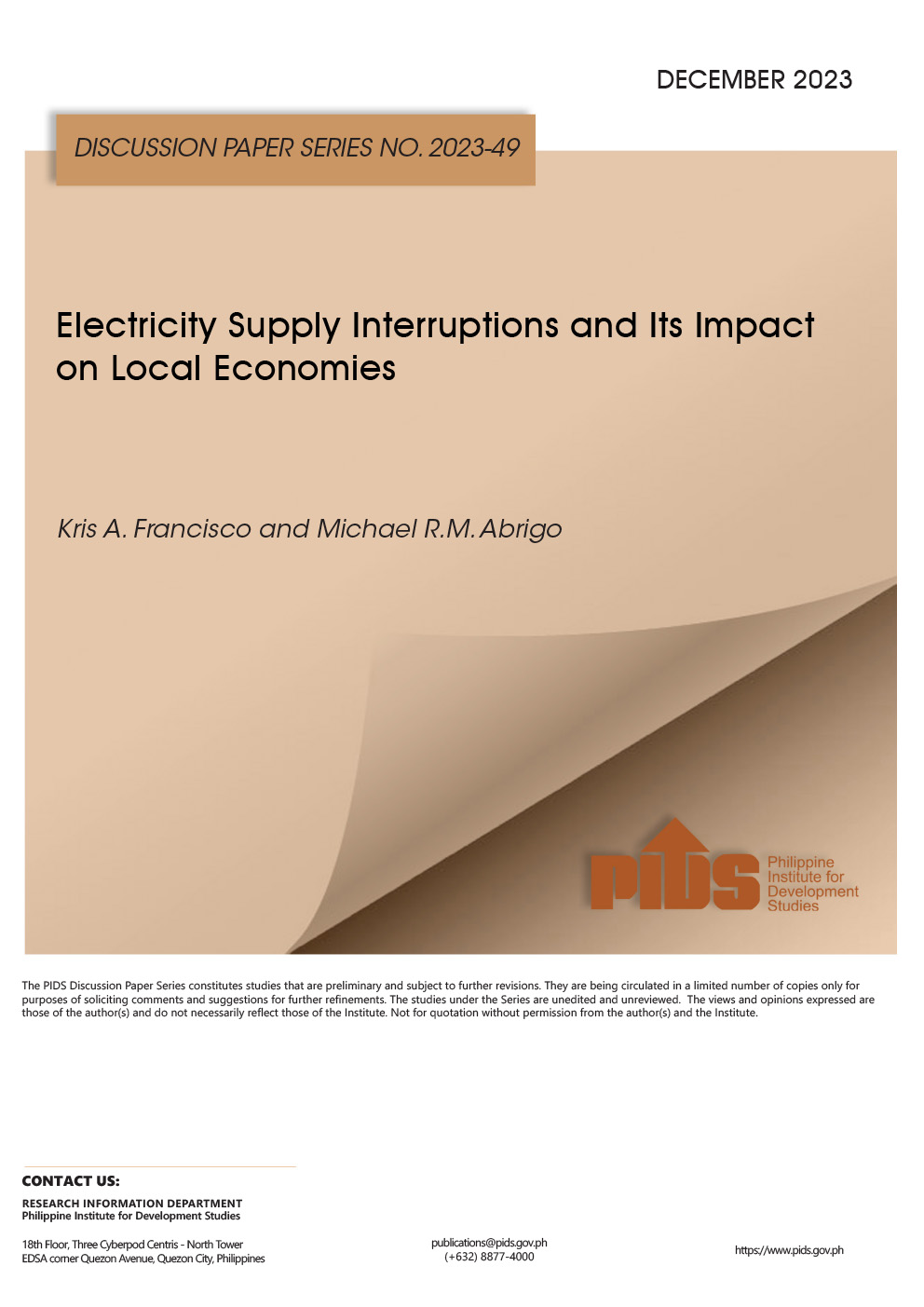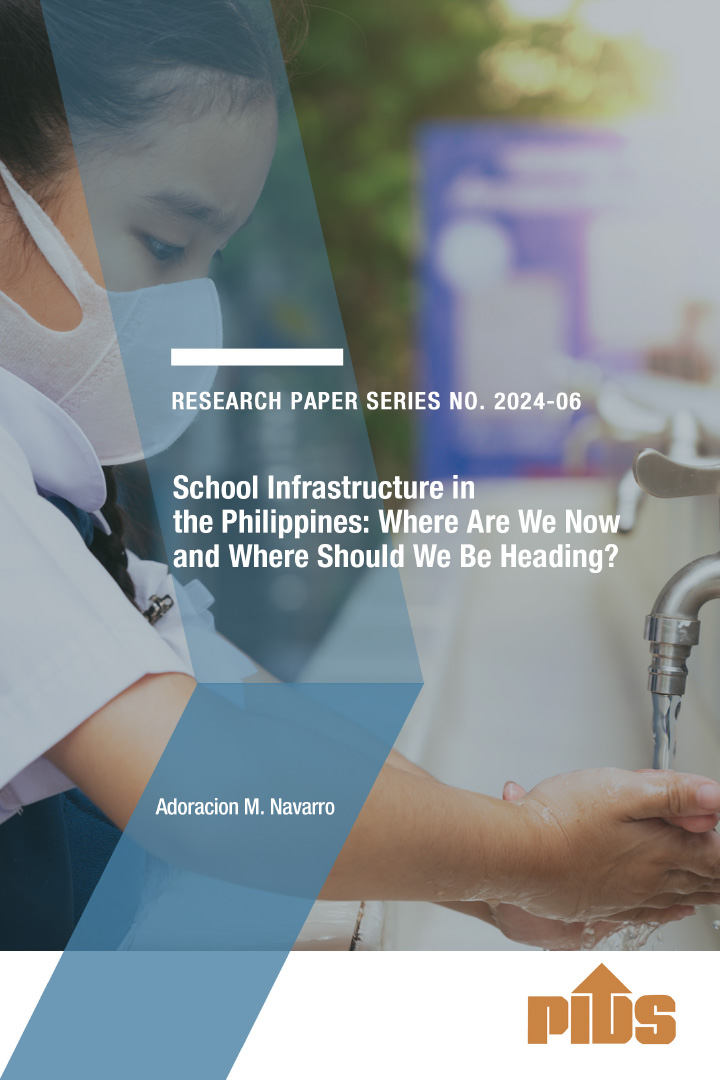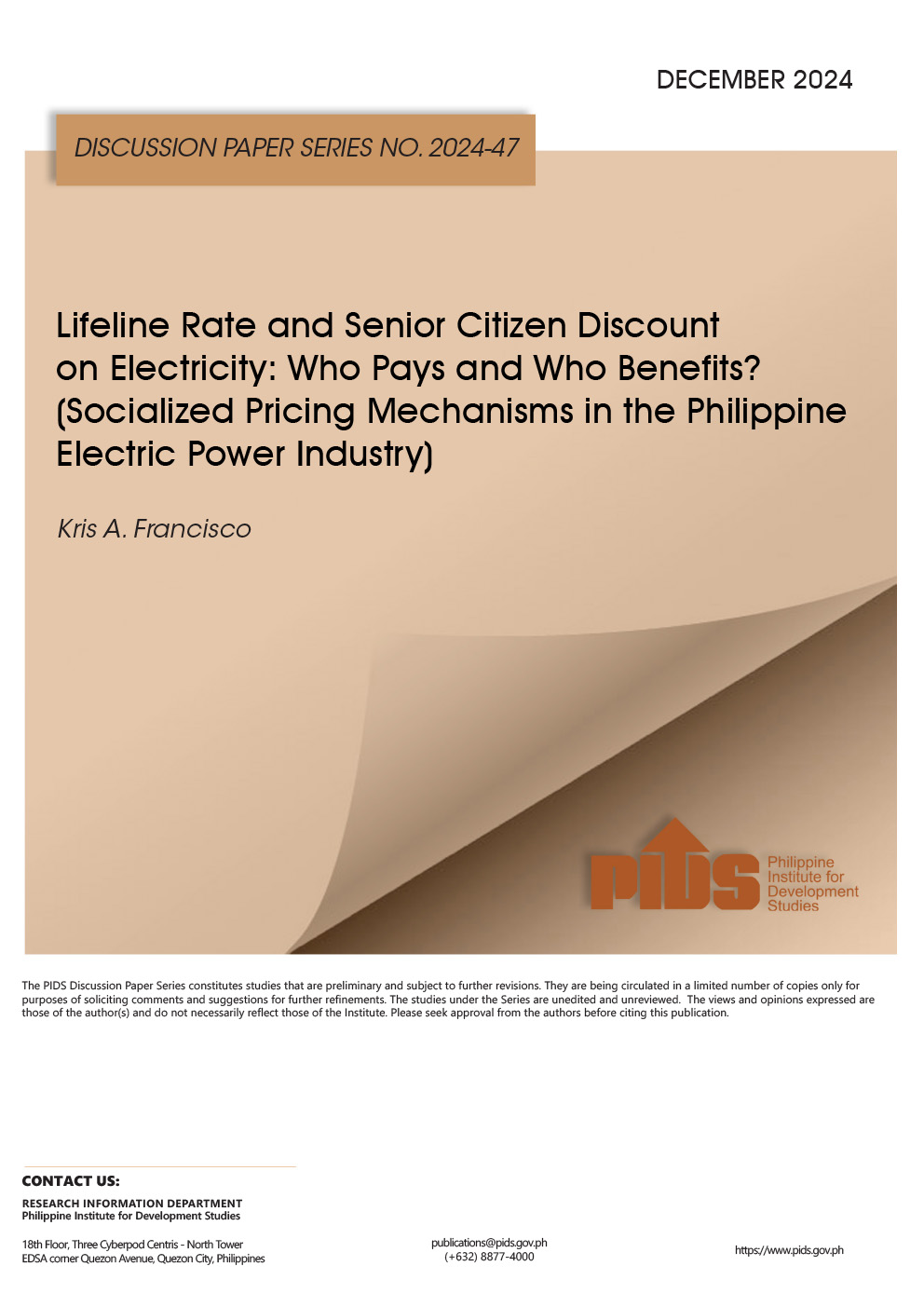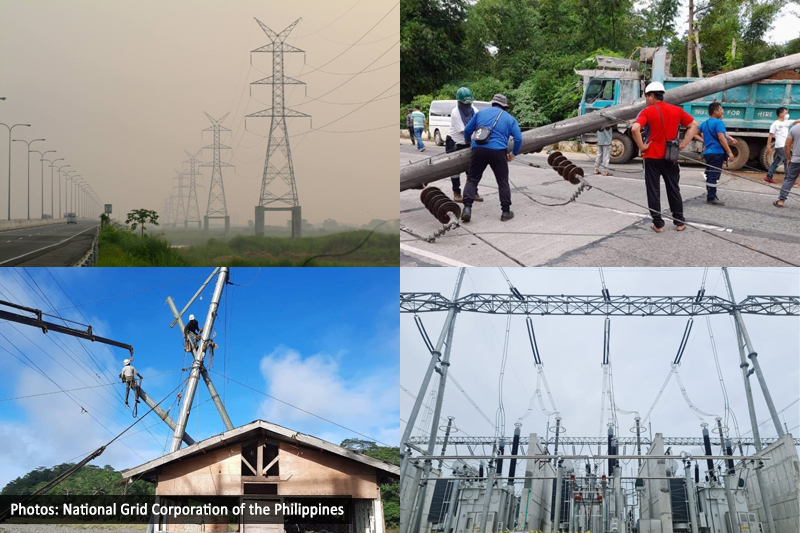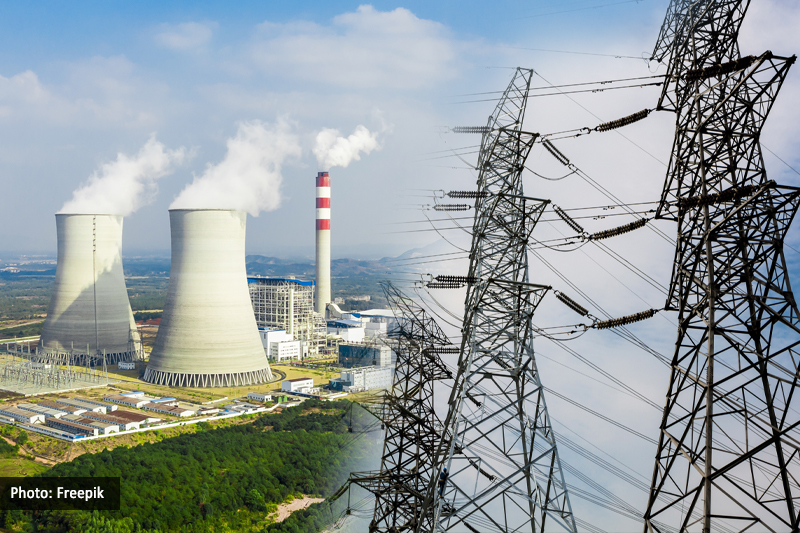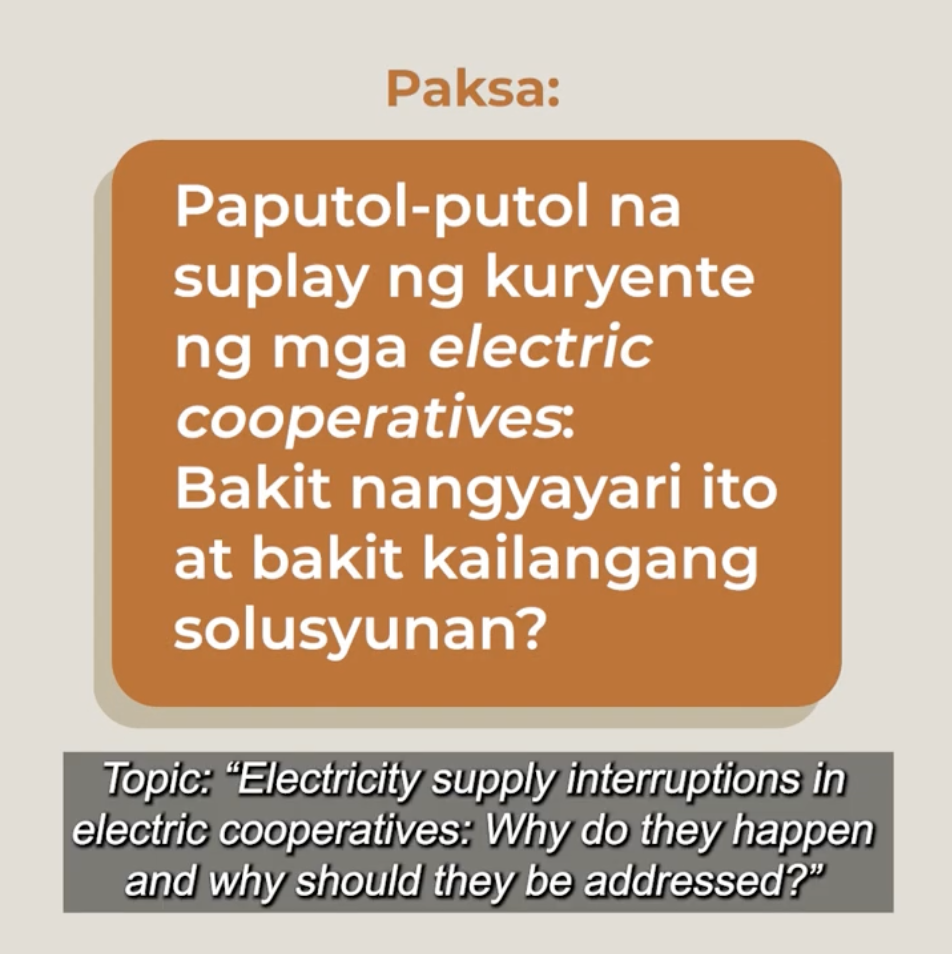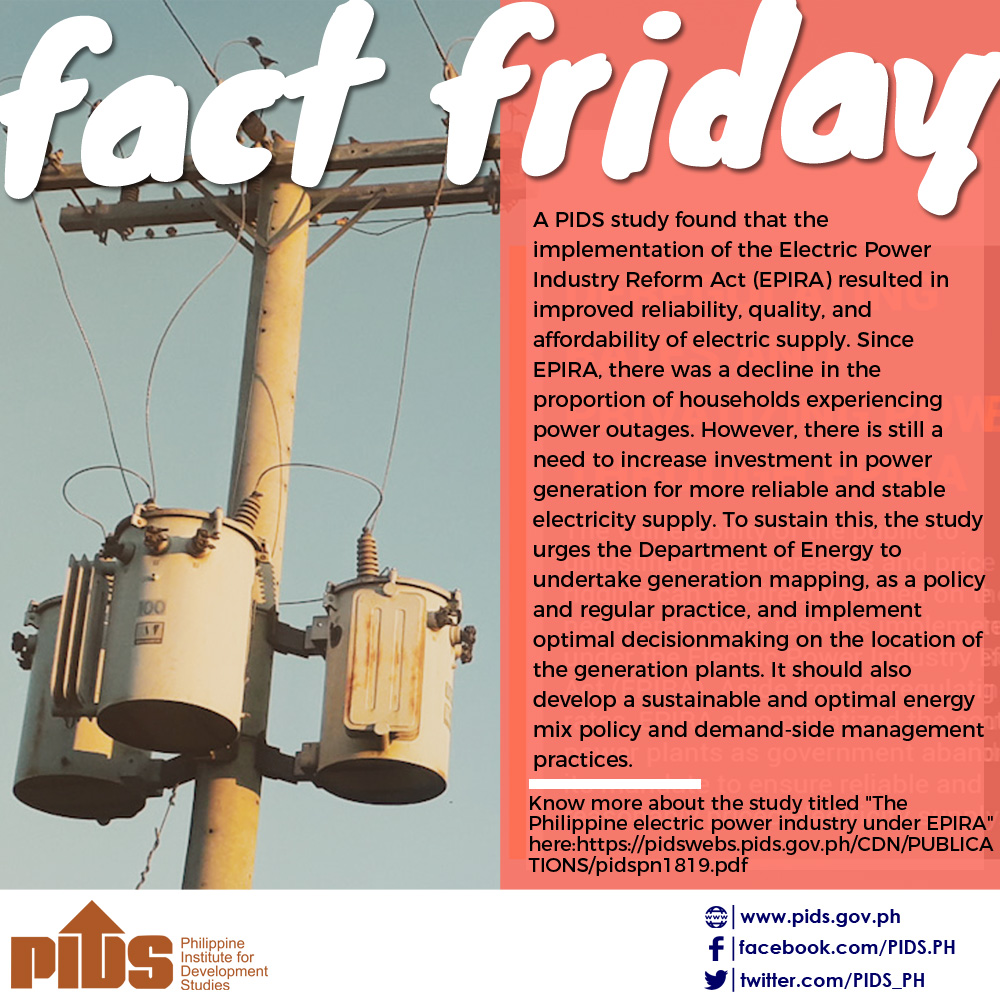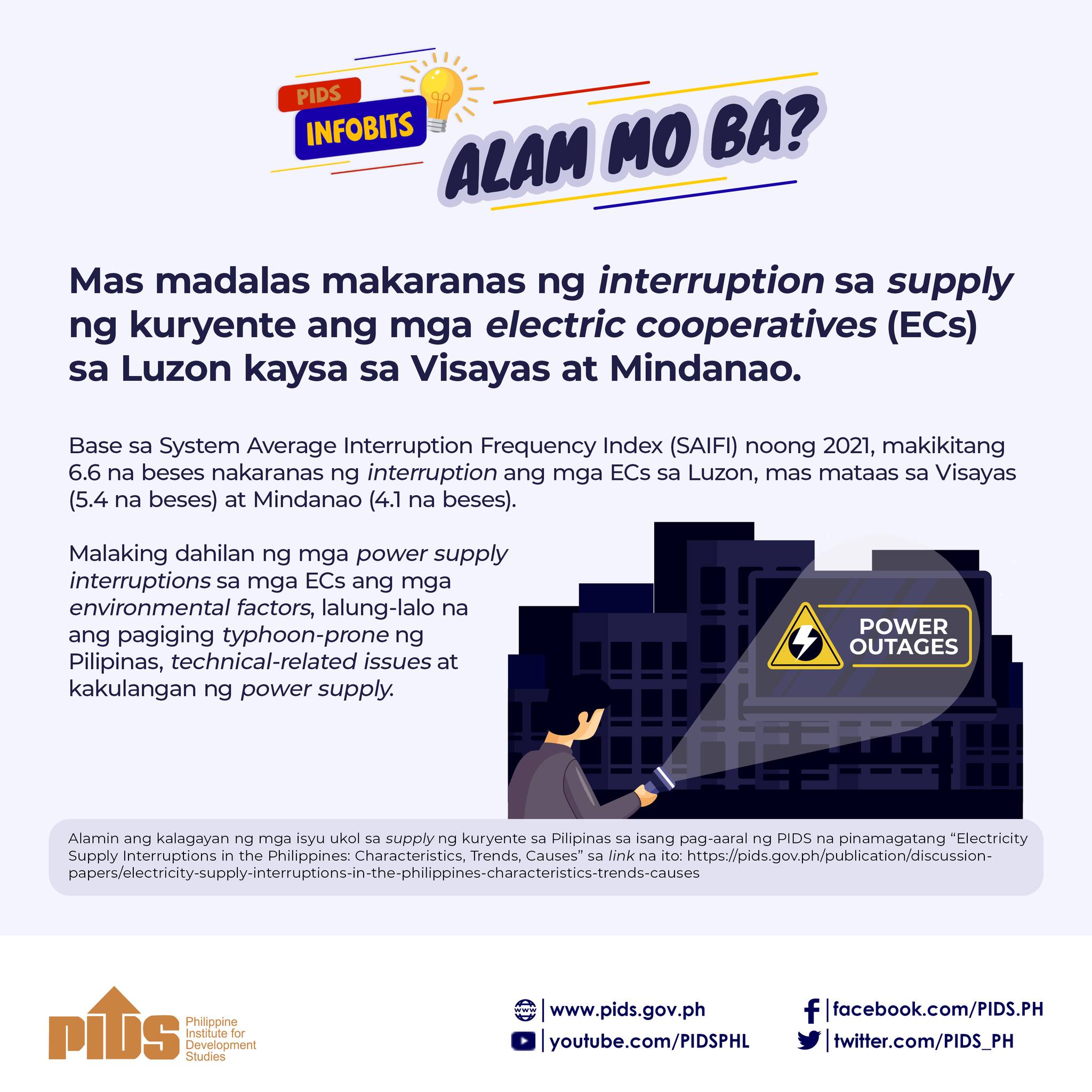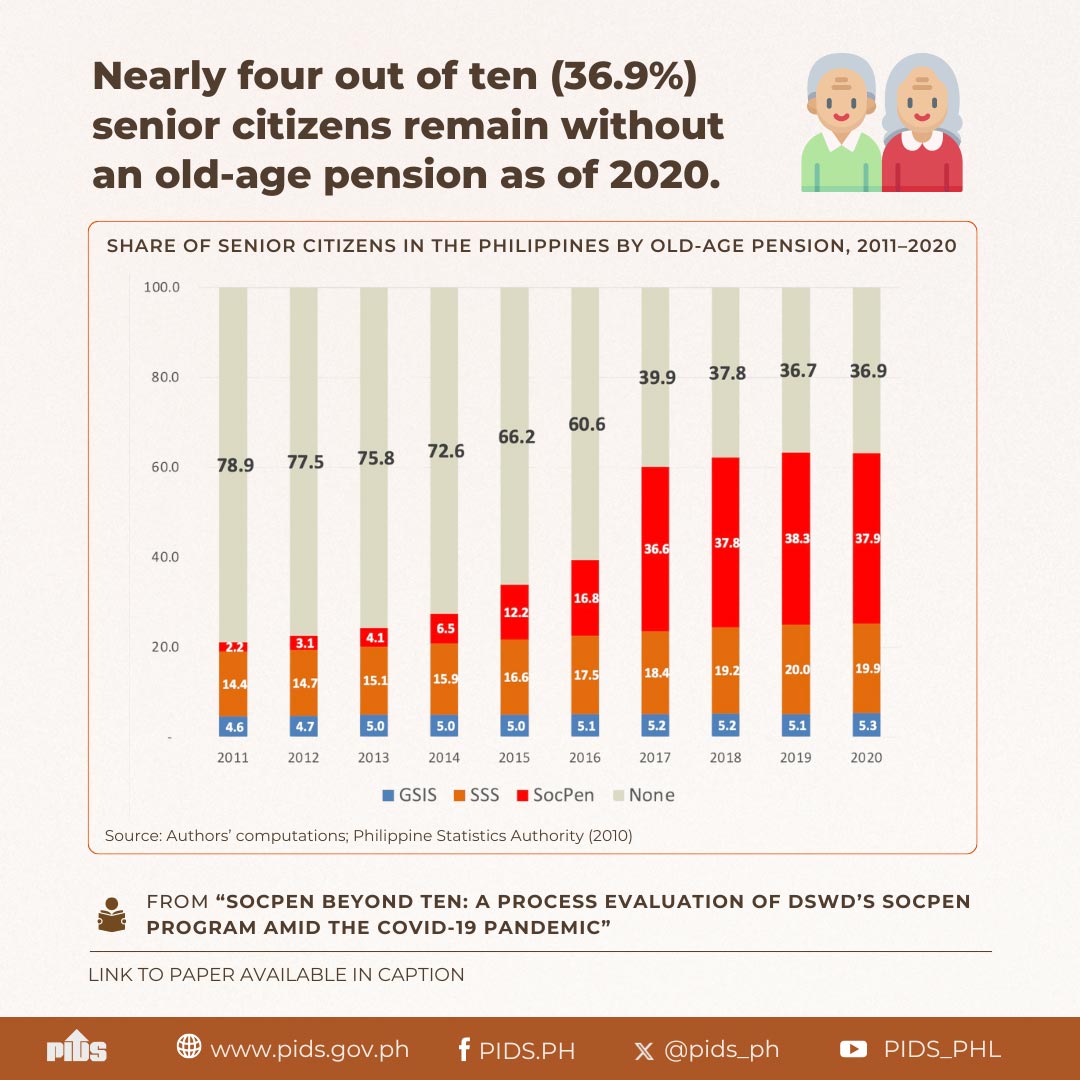Over 40 million Filipinos still rely on traditional biomass for cooking and 16 million do not have electricity, according to a study released by the Philippine Institute for Development Studies (PIDS).These were among the key findings included in the study titled "Energy Market Integration and Energy Poverty in Asean [Association of Southeast Asian Nations.]” The study was authored by Jessie L. Todoc, Philippines Program Manager, SEA Energy Access and Alternative Energy, International Copper Association Southeast Asia, Philippines; PIDS Senior Research Fellow Adoracion Navarro; and Maxensius Tri Sambodo of the Indonesian Institute of Sciences Economic Research Center. The authors said the number of Filipinos who still rely on traditional biomass for cooking accounts for 50 percent of the country’s population, while the country’s total electrification rate was still at 83 percent. The study also cited data that showed the country’s urban electrification rate of 94 percent, and was 21 notches higher than the rural electrification rate of 73 percent. But the problem is not unique to the Philippines. The study showed that 63 million Indonesians have no access to electricity; 26 million in Myanmar; 10 million in Cambodia; 8 million in Thailand; 2 million in Vietnam; 2.2 million in Lao PDR; and 200,000 in Malaysia. "Only Singapore and Brunei Darussalam have 100-percent electrification rate,” the PIDS noted in a statement. "Lack of electricity access is much greater in rural areas than in urban areas.” The study stated that improving the rural electrification ratio is a major challenge both at the national and regional levels considering the level of electricity access among the 10 Asean members.
16 million Filipinos exist sans electricity; 47 million still rely on biomass for cooking

